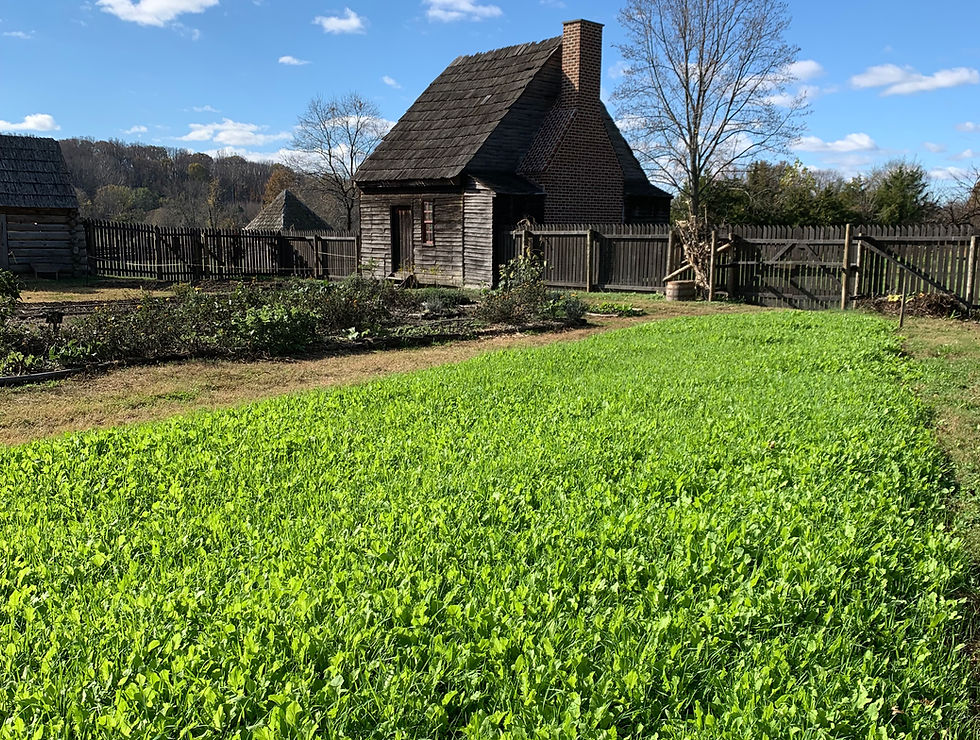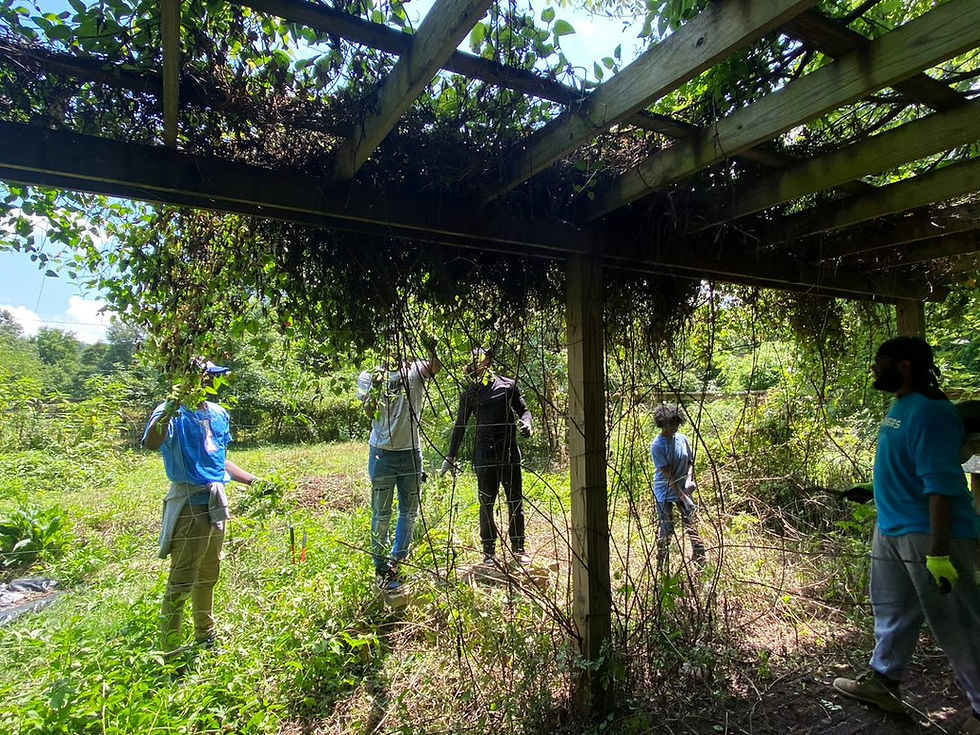Field Notes: Volume 16, Number 13
- Accokeek Foundation

- Jul 29, 2011
- 3 min read

This Week’s Harvest
Scallions
Beets
Red Cabbage
Potatoes
Cucumbers
Peppers
Tomatoes
While we strive for consistency at the Ecosystem Farm, we ask that our SHAREholders please keep in mind that Friday and Tuesday harvests will not always be the same.
For your convenience, an exact harvest list will be posted in the packing shed.
This season, it seems, is one of the stink bug. Introduced to the mid-Atlantic region from Asia more than a decade ago, invasive populations of the brown marmorated stink bug have expanded to wreak havoc on the East Coast. Munching on ornamental plants, fruit trees, vegetables, and legumes—and entering into homes and buildings in the fall to seek shelter before winter arrives—these pests do so much more damage than their squash bug relatives.
Indeed, the brown marmorated stink bug is slated to do severe damage to fruit, vegetables, and farm crops throughout the United States, feeding on plant tissue to the point that a fruit or vegetable becomes pitted, dimpled, or otherwise deformed, and thus unsalable.
At the Ecosystem Farm, we have lost an entire crop to the pest. The tomatillos have acted as a trap crop of sorts, attracting the brown marmorated stink bug away from other, perhaps more valuable crops. While it is disappointing to lose the husked green fruit, we have accepted this loss with the knowledge that the battle against this insect will be a hard one to win.
The stink bug was a hot topic at a talk on pest control that Courtney attended this week through the Chesapeake CRAFT (Collaborative Regional Alliance for Farmer Training) program. Held at Red Wiggler Community Farm, a non-profit organization in Clarksburg, Md., that provides gainful employment to adults with developmental disabilities, the site visit provided farm apprentices, interns, and workers with a chance to examine live insects and learn how to control them.
But even as we lose some crops, we look forward to putting others into the ground, like the strawberries that arrived this week or the brassicas that we have grown from seed. And we look forward to that time when we can experience cooler weather and a new batch of greens to harvest and enjoy.
Below, photos from this week on the Ecosystem Farm. Click images to enlarge, or view them on Flickr.
This Week’s Recipe: Braised Beets and Red Cabbage
Recipe from Epicurious.com
Ingredients:
3/4 pound red cabbage, cut into wedges and cored
4 medium beets, peeled
1/4 cup (1/2 stick) butter
2 onions, chopped
1/2 cup (or more) water
1/4 cup balsamic vinegar
2 tablespoons chopped fresh parsley
Salt and pepper to taste
Directions:
Working in batches, coarsely grate cabbage and beets. Set aside.
In heavy large skillet over medium heat, melt butter. Add onions and saute until brown, about 15 minutes. Mix in cabbage and beets. Add 1/2 cup water and vinegar. Cover; simmer until vegetables are tender, stirring occasionally and adding water by the tablespoon if mixture is dry, about 30 minutes. Season with salt and pepper. Transfer to a bowl; top with parsley.
Upcoming Events
Colonial Day: Crime and Punishment in Colonial Maryland: Saturday, July 30, 2011, 5 to 7:30 p.m., National Colonial Farm: Join our Museum Theatre interns in their final performance of the summer! Our evening begins with an entertaining performance of a favorite 18th-century children’s story: “The History of Little Goody Two Shoes.” Then, enjoy songs and stories delivered from The Pillory, before watching a hilarious send-up of the classic “whodunits” in “Murder On the Potomac.”
Local Food Forum: Tuesday, August 2, 2011, 6:30 to 8 p.m., Education Center: The Local Food Forum is a monthly meeting of producers and consumers interested in local food. We discuss locally-grown fruits, vegetables, eggs, and meat—from where to find them to how to make them more available.
Grow It, Eat It, Preserve It! Food Preservation Workshop: Saturday, August 13, 2011, 9 a.m. to 3 p.m., Education Center: This Food Preservation Workshop will cover safe, nutritious, and cost-effective methods of preserving your garden harvest. University of Maryland Extension Educators Cassandra Corridon, Rebecca Davis, and Lynn Little will discuss food preservation equipment, food safety, and water bath and pressure canning. This workshop will feature two hands-on activities in which participants will learn how to process a low- and high-acid food using water bath and pressure canners. Participants will be able to take their canned foods home, and will receive a copy of So Easy To Preserve. This book includes in-depth information for both the new and experienced food preserver, featuring tested recipes and instructions for water bath and pressure canning, making jams and jellies, pickling, and freezing and drying. Space is limited to 15 participants and registration is required in advance. Registration deadline: August 1, 2011.







